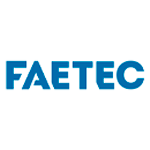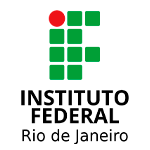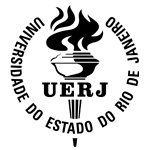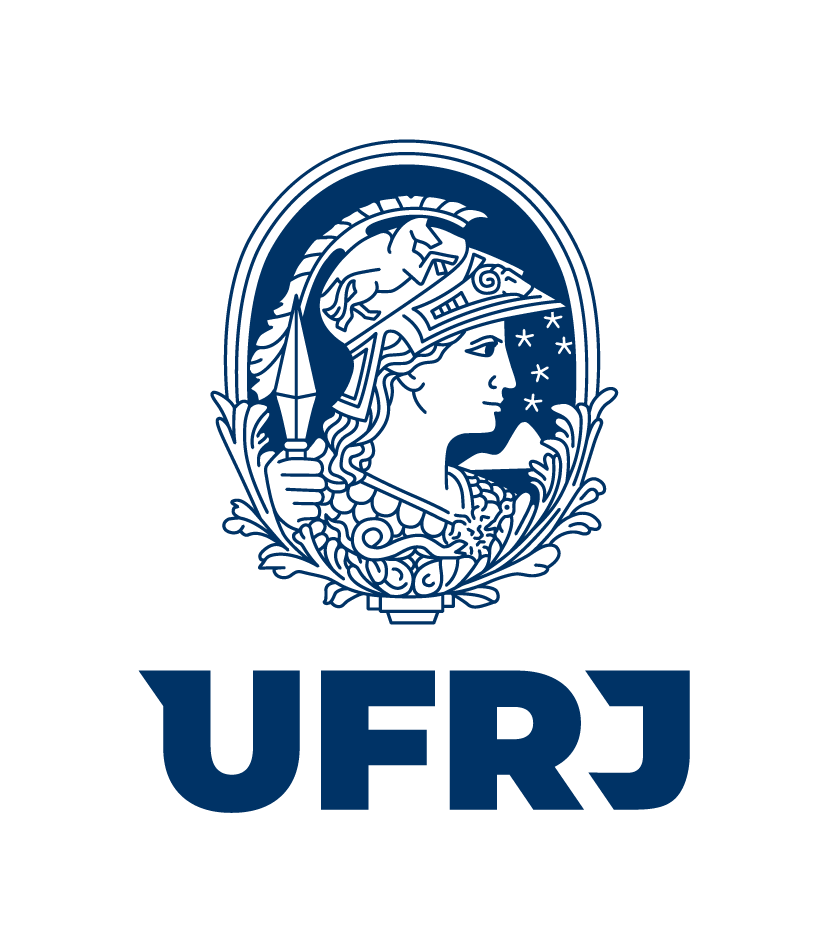O Retorno ao Ensino Presencial no Pós-pandemia: Percepções e Expectativas dos Universitários
DOI:
https://doi.org/10.18264/eadf.v14i1.2308Palavras-chave:
Pós-pandemia, Percepção discente, Universidade pública, Retorno ao ensino presencialResumo
A pandemia da Covid-19 obrigou organizações e governos a adotarem medidas de distanciamento social, tais como o deslocamento de atividades presenciais para o modelo remoto, mediado por Tecnologias de Informação e Comunicação (TIC). Contudo, o advento de vacinas e protocolos possibilitaram a diversos setores ― entre eles, o da educação ― o retorno ao modelo presencial, criando, assim, a demanda por pesquisas que investiguem esta situação, denominada “pós-pandemia”. Assim, o objetivo desse artigo foi identificar as percepções e expectativas dos estudantes de uma universidade pública brasileira frente ao retorno às aulas presenciais. Por meio de um questionário enviado aos universitários, o grupo de pesquisadores utilizou a técnica de análise de conteúdo para codificar e categorizar 987 respostas recebidas por meio de um Survey. Observou-se que as respostas dos alunos envolveram tanto aspectos diretamente ligados ao processo de ensino e aprendizagem (endógenos) quanto aspectos que tangenciam esse processo (exógenos).
Palavras-chave: Pós-pandemia. Discentes. Universidade pública. Retorno ao ensino presencial.
Downloads
Referências
ALVES, T. L. L.; AMORIM, A. F.A.; BEZERRA, M. C. C. “Nenhum a Menos”! A Adaptação ao Home Office em Tempos de COVID-19. Revista de Administração Contemporânea, v. 25, 2021. Disponível em https://doi.org/10.1590/1982-7849rac2021200234 Acesso em 16 mar. 2024.
ATMOJO, A. E. P.; NUGROHO, A. EFL classes must go online! Teaching activities and challenges during COVID-19 pandemic in Indonesia. Register Journal, v. 13, n. 1, p. 49-76, 2020. Disponível em https://doi.org/10.18326/rgt.v13i1.49-76 Acesso em 6 mai. 2024.
AUWAERTER, P. G. Coronavirus covid-19 (sars-cov-2). Johns Hopkins ABX Guide, 2020. Disponível em https://www.landmarkaesthetics.net/wp-content/uploads/2020/04/Coronavirus-COVID-1.pdf Acesso em 25 abr. 2024.
BABER, H. Social interaction and effectiveness of the online learning–A moderating role of maintaining social distance during the pandemic COVID-19. Asian Education and Development Studies, v. 11, n. 1, p. 159-171, 2022. Disponível em https://doi.org/10.1108/AEDS-09-2020-0209 Acesso em 5 fev. 2024.
BARDIN, L. Análise de conteúdo (Edição revisada e atualizada). São Paulo Edição 70. 2011.
BARRETT, P. et al. A holistic, multi-level analysis identifying the impact of classroom design on pupils’ learning. Building and environment, v. 59, p. 678-689, 2013. Disponível em https://doi.org/10.1016/j.buildenv.2012.09.016 Acesso em 28 fev. 2024.
BARRETT, P. et al. The holistic impact of classroom spaces on learning in specific subjects. Environment and behavior, v. 49, n. 4, p. 425-451, 2017. Disponível em https://doi.org/10.1177/0013916516648735 Acesso em 9 jun. 2024.
BATTY, M. The Coronavirus crisis: What will the post-pandemic city look like?. Environment and Planning B: Urban Analytics and City Science, v. 47, n. 4, p. 547-552, 2020. Disponível em https://doi.org/10.1177/2399808320926912 Acesso em 16 mai. 2024.
BAYERLEIN, L. et al. Developing skills in higher education for post-pandemic work. Labour & Industry: a journal of the social and economic relations of work, v. 31, n. 4, p. 418-429, 2021. Disponível em https://doi.org/10.1080/10301763.2021.1966292 Acesso em 28 fev. 2024.
BENJAMIN, S.; DILLETTE, A.; ALDERMAN, D. H. “We can’t return to normal”: committing to tourism equity in the post-pandemic age. Tourism Geographies, v. 22, n. 3, p. 476-483, 2020. Disponível em https://doi.org/10.1080/14616688.2020.1759130 Acesso em 1 jun. 2024.
BLOCK, P. et al. C.. Social network-based distancing strategies to flatten the COVID-19 curve in a post-lockdown world. Nature human behaviour, v. 4, n. 6, p. 588-596, 2020. Disponível em https://doi.org/10.1038/s41562-020-0898-6 Acesso em 6 mai. 2024.
BOZKURT, A.; SHARMA, R. C. Emergency remote teaching in a time of global crisis due to CoronaVirus pandemic. Asian journal of distance education, v. 15, n. 1, p. i-vi, 2020. Disponível em https://asianjde.com/ojs/index.php/AsianJDE/article/view/447 Acesso em 28 mar. 2024.
BRASIL. Diário Oficial da União. Portaria nº 188, de 3 de fevereiro de 2020. Brasília, 2020. Disponível em https://legislacao.presidencia.gov.br/atos/?tipo=PRT&numero=188&ano=2020&data=03/02/2020&ato=9ecUTW61EMZpWT815 Acesso em 5 fev. 2024.
CARDOSO, C. A.; FERREIRA, V. A.; BARBOSA, F. C. G. (Des) igualdade de acesso à educação em tempos de pandemia: uma análise do acesso às tecnologias e das alternativas de ensino remoto. Revista Com Censo: Estudos Educacionais do Distrito Federal, v. 7, n. 3, p. 38-46, 2020. Disponível em https://www.nucleodoconhecimento.com.br/educacao/populares-durante Acesso em 24 mai. 2024.
CASTRO, C. M. A prática da pesquisa. 2.ed. São Paulo: Mc-Graw Hill do Brasil, 1978.
CASTELLI, F. R.; SARVARY, M. A. Why students do not turn on their video cameras during online classes and an equitable and inclusive plan to encourage them to do so. Ecology and Evolution, v. 11, n. 8, p. 3565-3576, 2021. Disponível em https://doi.org/10.1002/ece3.7123 Acesso em 7 jun. 2024.
CHOU, W. et al. Voluntary reduction of social interaction during the COVID-19 pandemic in Taiwan: related factors and association with perceived social support. International journal of environmental research and public health, v. 17, n. 21, p. 8039, 2020. Disponível em https://doi.org/10.3390/ijerph17218039 Acesso em 18 fev. 2024.
CHUEKE, G. V.; LIMA, M. C. Pesquisa Qualitativa: evolução e critérios. Revista Espaço Acadêmico, v. 11, n. 128, p. 63-69, 2012. Disponível em https://periodicos.uem.br/ojs/index.php/EspacoAcademico/article/view/12974 Acesso em 7 mar. 2024.
DESHMUKH, J. Speculations on the post-pandemic university campus–a global inquiry. Archnet-IJAR: International Journal of Architectural Research, v. 15, n. 1, p. 131-147, 2021. Disponível em https://doi.org/10.1108/ARCH-10-2020-0245 Acesso em 18 fev. 2024.
DENZIN, N. K.; LINCOLN, Y. S. Introduction: the discipline of qualitative research. The Sage Handbook of Qualitative Research. 3rd ed., Thousand Oaks, CA: Sage, p. 1-43, 2005.e
DOS SANTOS, E; DE SOUZA LIMA E. “Da noite para o dia” o ensino remoto:(re) invenções de professores durante a pandemia. Revista Brasileira de Pesquisa (Auto) Biográfica, v. 5, n. 16, p. 1632-1648, 2020. Disponível em https://doi.org/10.31892/rbpab2525-426X.2020.v5.n16.p1632-1648 Acesso em 24 mai. 2024.
FERREIRA, D. H. L.; BRANCHI, B. A.; SUGAHARA, C. R. Processo de ensino e aprendizagem no contexto das aulas e atividades remotas no Ensino Superior em tempo da pandemia Covid-19. Revista práxis, v. 12, n. 1 (sup), 2020. Disponível em https://doi.org/10.47385/praxis.v12.n1sup.3464 Acesso em 14 fev. 2024.
FLICK, U.; VON KARDORFF, E.; STEINKE, I. What is qualitative research? An introduction to the field. A companion to qualitative research, v. 1, p. 3-11, 2004. Disponível em https://www.ascdegreecollege.ac.in/wp-content/uploads/2020/12/A-companion-to-qualitative-research.pdf#page=18 Acesso em 8 jun. 2024.
GARCIA, L. P.; DUARTE, E. Intervenções não farmacológicas para o enfrentamento à epidemia da COVID-19 no Brasil. Epidemiologia e Serviços de Saúde, v. 29, 2020. Disponível em https://doi.org/10.5123/S1679-49742020000200009 Acesso em 15 fev. 2024.
GATTI, B. A Possível reconfiguração dos modelos educacionais pós-pandemia. Estudos Avançados, v. 34, p. 29-41, 2020. Disponível em https://doi.org/10.1590/s0103-4014.2020.34100.003 Acesso em 8 mai. 2024.
GRANJEIRO, E. M. et al. Estratégias de ensino à distância para a educação interprofissional em Saúde frente à pandemia COVID-19. Revista de Divulgação Científica Sena Aires, v. 9, p. 591-602, 2020. Disponível em https://pesquisa.bvsalud.org/portal/resource/pt/biblio-1128341 Acesso em 8 mar. 2024.
GREENHOW, C.; GALVIN, S. Teaching with social media: Evidence-based strategies for making remote higher education less remote. Information and Learning Sciences, 2020. Disponível em https://doi.org/10.1108/ILS-04-2020-0138 Acesso em 4 jun. 2024.
GUENTHER, M. Como será o amanhã? O mundo pós-pandemia. Revista Brasileira De Educação Ambiental (RevBEA), v. 15, n. 4, p. 31-44, 2020. Disponível em https://doi.org/10.34024/revbea.2020.v15.10766 Acesso em 6 mar. 2024.
HAMPSTEN, K. Embracing discomfort and resisting a return to “the good old days”: A call to communication educators. Communication Education, v. 70, n. 2, p. 208-210, 2021. Disponível em https://doi.org/10.1080/03634523.2020.1857413 Acesso em 25 jun. 2024.
HILL, C. et al. What kind of educator does the world need today? Reimagining teacher education in post-pandemic Canada. Journal of Education for Teaching, v. 46, n. 4, p. 565-575, 2020. Disponível em https://doi.org/10.1080/02607476.2020.1797439 Acesso em 14 mai. 2024.
HODGES, C. B.; MOORE, S.; LOCKEE, B. The difference between emergency remote teaching and online learning. Educase Review. 2020. Disponível em https://er.educause.edu/articles/2020/3/the-difference-between-emergency-remote-teaching-and-online-learning Acesso em 8 jun. 2024.
INFANTE-MORO, A. et al. Motivational factors in the use of videoconferences to carry out tutorials in spanish universities in the post-pandemic period. International Journal of Environmental Research and Public Health, v. 18, n. 19, p. 10474, 2021. Disponível em https://doi.org/10.3390/ijerph181910474 Acesso em 15 fev. 2024.
JONES, N. R. et al. Two metres or one: what is the evidence for physical distancing in covid-19? BMJ, v. 370, 2020. Disponível em https://doi.org/10.1136/bmj.m3223 Acesso em 29 mar. 2024.
JOYE, C, R.; MOREIRA, M. M.; ROCHA, S. S. D. Educação a Distância ou Atividade Educacional Remota Emergencial: em busca do elo perdido da educação escolar em tempos de COVID-19. Pesquisa, Sociedade e Desenvolvimento, v. 9, n. 7, 2020. Disponível em https://doi.org/10.33448/rsd-v9i7.4299 Acesso em 6 jun. 2024.
LADSON-BILLINGS, G. I’m here for the hard re-set: Post pandemic pedagogy to preserve our culture. Equity & Excellence in Education, v. 54, n. 1, p. 68-78, 2021. Disponível em https://doi.org/10.1080/10665684.2020.1863883 Acesso em 9 mai. 2024.
LOSEKANN, R. G. C. B.; MOURÃO, H. C. Desafios do teletrabalho na pandemia Covid-19: quando o home vira office. Caderno de Administração, v. 28, p. 71-75, 2020. Disponível em https://doi.org/10.4025/cadadm.v28iEdição E.53637 Acesso em 24 mar. 2024.
MAGUIRE, A.; MCNAMARA, D. Human rights and the post-pandemic return to classroom education in Australia. Alternative Law Journal, v. 45, n. 3, p. 202-208, 2020. Disponível em https://doi.org/10.1177/1037969X20954292 Acesso em 15 fev. 2024.
MAHMOOD, S. Instructional strategies for online teaching in COVID‐19 pandemic. Human behavior and emerging technologies, v. 3, n. 1, p. 199-203, 2021. Disponível em https://doi.org/10.1002/hbe2.218 Acesso em 4 jun. 2024.
MARSTON, H. R.; SHORE, L.; WHITE, P. J. How does a (smart) age-friendly ecosystem look in a post-pandemic society? International journal of environmental research and public health, v. 17, n. 21, p. 8276, 2020. Disponível em https://doi.org/10.3390/ijerph17218276 Acesso em 29 mar. 2024.
MOREIRA, J. A.; HENRIQUES, S.; BARROS, D. M. V. Transitando de um ensino remoto emergencial para uma educação digital em rede, em tempos de pandemia. Dialogia, p. 351-364, 2020. Disponível em https://doi.org/10.5585/Dialogia.N34.17123 Acesso em 15 fev. 2024.
MORGAN, G.; SMIRCICH, L. The case for qualitative research. Academy of management review, v. 5, n. 4, p. 491-500, 1980. Disponível em https://doi.org/10.5465/amr.1980.4288947 Acesso em 12 abr. 2024.
OMS – Organização Mundial da Saúde (2020a). Coronavírus. Disponível em 30 de janeiro de 2022, de : https://www.who.int/health-topics/coronavirus#tab=tab_1 Acesso em 14 mar. 2024.
ONYEAKA, H. et al. A review on the advancements in the development of vaccines to combat coronavirus disease 2019. Clinical and experimental vaccine research, v. 10, n. 1, p. 6, 2021. Disponível em https://doi.org/10.7774/cevr.2021.10.1.6 Acesso em 6 mai. 2024.
RAPANTA, C. et al. Balancing technology, pedagogy and the new normal: Post-pandemic challenges for higher education. Postdigital Science and Education, v. 3, n. 3, p. 715-742, 2021. Disponível em https://doi.org/10.1007/s42438-021-00249-1 Acesso em 4 jun. 2024.
ROSENBERG, B. How should colleges prepare for a post-pandemic world. The Chronicle Review, v. 13, 2020. Disponível em https://www.chronicle.com/article/how-should-colleges-prepare-for-a-post-pandemic-world/ Acesso em 15 fev. 2024.
UR REHMAN, I. et al. Barriers in Social Distancing during Covid19 pandemic-Is a message for forced lockdown. Journal of Medical Research and Innovation, v. 4, n. 2, p. e000222-e000222, 2020. Disponível em https://doi.org/10.32892/jmri.122 Acesso em 29 mar. 2024.
VARMA, A.; JAFRI, M. S. COVID-19 responsive teaching of undergraduate architecture programs in India: learnings for post-pandemic education. Archnet-IJAR: International Journal of Architectural Research, v. 15, n. 1, p. 189-202, 2020. Disponível em https://doi.org/ 10.1108/ARCH-10-2020-0234 Acesso em 19 jun. 2024.
ZHAI, Y; DU, X. Addressing collegiate mental health amid COVID-19 pandemic. Psychiatry research, v. 288, p. 113003, 2020. Disponível em https://doi.org/10.1016/j.psychres.2020.113003 Acesso em 29 mar. 2024.
Downloads
Publicado
Como Citar
Edição
Seção
Licença
Copyright (c) 2024 EaD em Foco

Este trabalho está licenciado sob uma licença Creative Commons Attribution 4.0 International License.
Todos os artigos publicados na Revista EaD em Foco recebem a licença Creative Commons - Atribuição 4.0 Internacional (CC BY 4.0). Todas as publicações subsequentes, completas ou parciais, deverão ser feitas com o reconhecimento, nas citações, da Revista EaD em Foco como a editora original do artigo.













